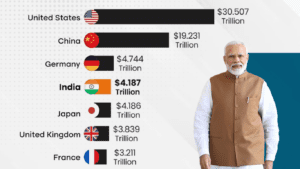On May 21, 2025, the Supreme Court of India made headlines by granting bail to Abdul Sathar, a former leader of the banned Popular Front of India (PFI), in the 2022 murder case of RSS worker Sreenivasan in Palakkad, Kerala. The decision, delivered by Justices Abhay S. Oka and Ujjal Bhuyan, sparked nationwide debates due to its justice, ideology, and national security implications. Sreenivasan, a former RSS physical education instructor, was brutally killed in his shop, allegedly by PFI members, in what the National Investigation Agency (NIA) calls a planned act of communal violence. The court’s ruling, emphasizing that “you cannot jail someone for their ideology,” has raised questions about balancing individual rights and public safety. This article dives into the case’s background, the court’s reasoning, the roles of PFI and RSS, public reactions, and what this means for India’s legal and social landscape.
The Murder of Sreenivasan: A Tragic Incident
On April 16, 2022, Sreenivasan, a Rashtriya Swayamsevak Sangh (RSS) worker, was hacked to death in his motorbike shop in Palakkad’s Melamuri area. The brutal attack, carried out by five to six assailants armed with machetes, shocked Kerala. The National Investigation Agency (NIA) took over the case, alleging it was a retaliatory killing linked to the murder of SDPI leader KS Shan a day earlier. Sreenivasan’s death was not an isolated event but part of a cycle of political violence in Kerala, where tensions between RSS, PFI, and SDPI have often turned deadly. The NIA claimed PFI orchestrated the murder to fuel communal unrest, pointing to a broader conspiracy called “India 2047” aimed at radicalizing youth. This tragedy set the stage for a complex legal battle, with Abdul Sathar, a senior PFI leader, emerging as a key figure in the case.
Details of the Attack
Sreenivasan was attacked in broad daylight by assailants who arrived on three bikes. They inflicted multiple fatal injuries with sharp weapons, leaving no chance for escape. Eyewitnesses described a swift, brutal assault, highlighting the violence’s intensity. The NIA later linked the attack to PFI’s hit squads, alleging meticulous planning.
Context of Communal Tensions
Kerala has seen rising clashes between RSS and PFI-SDPI activists. Sreenivasan’s murder followed the killing of SDPI’s KS Shan, suggesting a tit-for-tat cycle. The NIA’s probe revealed PFI’s alleged goal of inciting communal strife, making this case a flashpoint in Kerala’s volatile political landscape.
Who is Abdul Sathar?
Abdul Sathar, former Secretary General of PFI’s Kerala unit, was a decision-making figure in the banned organization. Arrested in 2022, he faced charges under the Unlawful Activities (Prevention) Act (UAPA) for his alleged role in Sreenivasan’s murder conspiracy. The NIA claimed Sathar recruited cadres, facilitated arms training, and had a photo of Sreenivasan on his phone, suggesting involvement. However, his lawyer, Aditya Sondhi, argued Sathar had no direct role in the killing, and his 71 prior cases—mostly tied to protests—were ideological, not violent. Sathar’s properties in Kollam were attached by the state, and he faced significant scrutiny as a PFI leader. His bail plea became a test of how courts view ideology versus criminality, especially in high-profile terror cases.
Sathar’s Role in PFI
As PFI’s Secretary General, Sathar was a key organizer, allegedly overseeing cadre recruitment and training. The NIA pointed to his leadership role and the photo evidence as proof of conspiracy involvement, though no direct act of violence was attributed to him.
Legal History and Charges
Sathar’s 71 prior cases, mostly linked to hartals and protests in 2022, were cited by the NIA to argue his threat to society. However, Sondhi noted Sathar had secured bail in all these cases, framing them as ideological expressions rather than criminal acts, influencing the court’s view.
The Supreme Court’s Ruling
The Supreme Court’s decision to grant bail to Sathar hinged on a key principle: ideology alone cannot justify detention. Justices Oka and Bhuyan criticized the trend of jailing people for their beliefs, stating, “The process cannot become the punishment.” They noted Sathar’s lack of direct involvement in Sreenivasan’s murder and the trial’s delay, partly due to a court-imposed stay. The bench also granted bail to co-accused Yahiya Koya Thangal and Abdul Raoof C.A., citing similar reasoning. The NIA’s argument for preventive detention to stop future crimes was rejected, with the court emphasizing fair trial rights. This ruling, part of a series of bail grants in the case, has sparked debates about judicial leniency in terror-related cases.
Key Arguments in the Verdict
The court stressed that no overt act tied Sathar to the murder, and his antecedents were mostly protest-related. Justices Oka and Bhuyan argued that prolonged detention without a speedy trial violates justice, prioritizing evidence over ideological assumptions.
Other Bail Grants in the Case
On May 19, 2025, the Supreme Court granted bail to three other PFI members—Saddam Hussain, Ashraf, and Noushad M—citing trial delays and lack of direct involvement. The same logic applied to Sathar’s case, showing a pattern of judicial scrutiny over prolonged detentions.
The Role of PFI and RSS in the Case
The Popular Front of India, banned in September 2022 under UAPA, was accused by the NIA of radicalizing youth and planning communal violence, with Sreenivasan’s murder as a key example. PFI’s alleged “India 2047” vision aimed at establishing Islamic rule fueled concerns about its activities. Conversely, the RSS, a Hindu nationalist organization, has been a frequent target of PFI and SDPI, with Sreenivasan’s murder seen as part of this rivalry. Both groups have been linked to violent incidents in Kerala, creating a charged backdrop. The NIA’s probe highlighted PFI’s organized structure, while RSS’s influence in Kerala’s politics added layers to the case’s complexity.
PFI’s Alleged Agenda
The NIA claimed PFI’s “India 2047” plan involved radicalizing Muslim youth for terror acts. Sreenivasan’s murder was allegedly a calculated move to escalate communal tensions, with PFI’s hit squads executing the plan under leaders like Sathar.
RSS’s Presence in Kerala
The RSS, a major ideological force behind the BJP, has a strong presence in Kerala, often clashing with leftist and Islamist groups. Sreenivasan, though less active at the time of his death, was a symbolic target, highlighting the ongoing RSS-PFI feud.
Public and Political Reactions
The Supreme Court’s decision stirred strong reactions. Some praised the court for upholding individual rights, arguing that jailing someone for ideology risks abuse of power. Others, especially BJP and RSS supporters, criticized the ruling as soft on terrorism, pointing to PFI’s violent history. Social media, particularly X, saw heated debates, with posts calling the judiciary “irresponsible” or defending the court’s focus on evidence. The NIA’s evidence, including the photo on Sathar’s phone, fueled arguments that bail was premature. Kerala’s political circles, already polarized, saw the ruling as a flashpoint, with calls for stricter laws against banned outfits like PFI.
Support for the Ruling
Some activists and legal experts supported the court, arguing that ideology-based detentions set a dangerous precedent. They emphasized the need for concrete evidence and speedy trials, seeing the ruling as a check on overreach by agencies like the NIA.
Criticism and Outrage
RSS-BJP supporters and some media outlets expressed outrage, citing PFI’s ban and Sathar’s leadership role as reasons for concern. Posts on X called the decision a blow to justice for Sreenivasan’s family, reflecting widespread public anger.
Legal and Social Implications
The ruling raises big questions about balancing security and rights. By rejecting ideology-based detention, the court challenges the use of UAPA to hold suspects without strong evidence. This could influence future terror-related cases, pushing for clearer proof of involvement. Socially, the decision deepens divides in Kerala, where communal tensions remain high. It may also prompt debates on reforming UAPA to prevent misuse while addressing genuine threats. The case highlights the judiciary’s role in navigating India’s complex socio-political landscape, where ideology often overshadows evidence.
Impact on UAPA Cases
The court’s stance could set a precedent for UAPA cases, urging prosecutors to focus on direct evidence rather than affiliations. This may lead to stricter scrutiny of preventive detentions, ensuring trials are timely and fair.
Kerala’s Communal Divide
Kerala’s history of RSS-PFI clashes makes this case a lightning rod. The ruling may fuel mistrust among communities, with RSS supporters feeling justice was denied, while others see it as a step toward protecting individual freedoms.
What’s Next for the Case?
With Sathar and others out on bail, the focus shifts to the trial, which remains stalled due to a Supreme Court stay. The NIA continues to pursue absconding suspects, like Shamnad E.K., arrested in 2025. The trial, involving nearly 1,000 witnesses, is expected to be lengthy, raising concerns about justice delayed. Sathar’s bail conditions, including GPS tracking, aim to ensure compliance, but public scrutiny will remain high. The case’s outcome could shape how India handles ideologically charged crimes, balancing punishment with fairness.
Trial Delays and Challenges
The trial’s stay, combined with the case’s complexity, means justice for Sreenivasan’s family is far off. The NIA must navigate a vast pool of evidence and witnesses, while the defense pushes for quicker resolutions to avoid prolonged detentions.
Future of PFI-Related Cases
The bail grants may influence other PFI cases, with courts likely to demand stronger evidence of direct involvement. This could pressure the NIA to refine its approach, while public and political reactions will keep the case in the spotlight.




